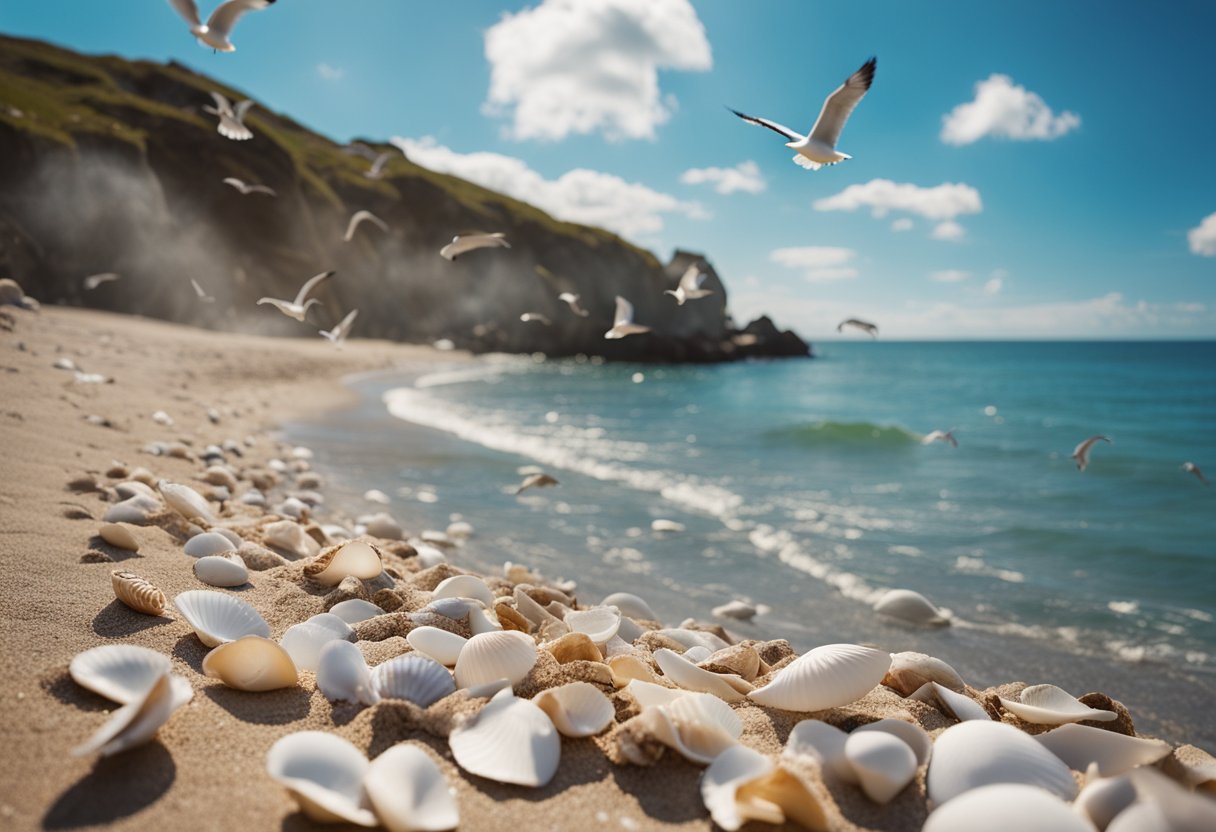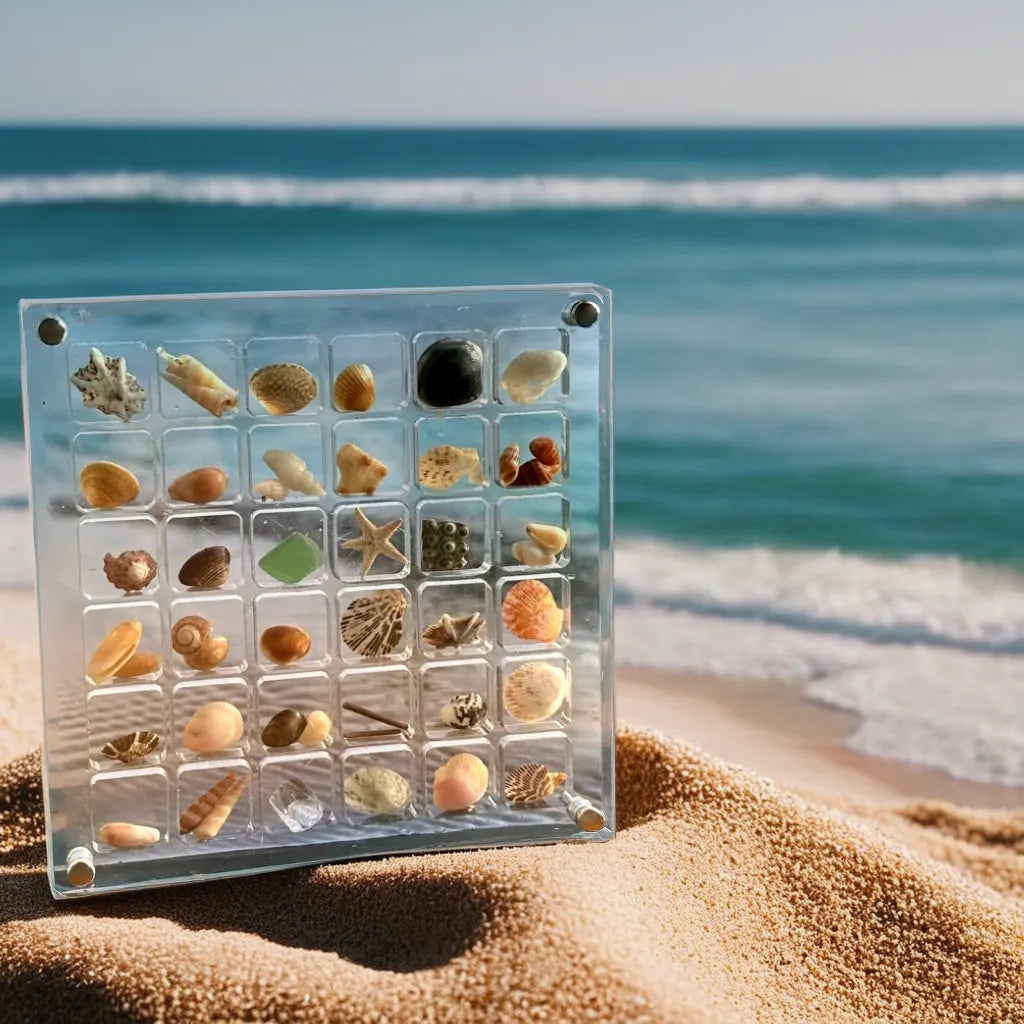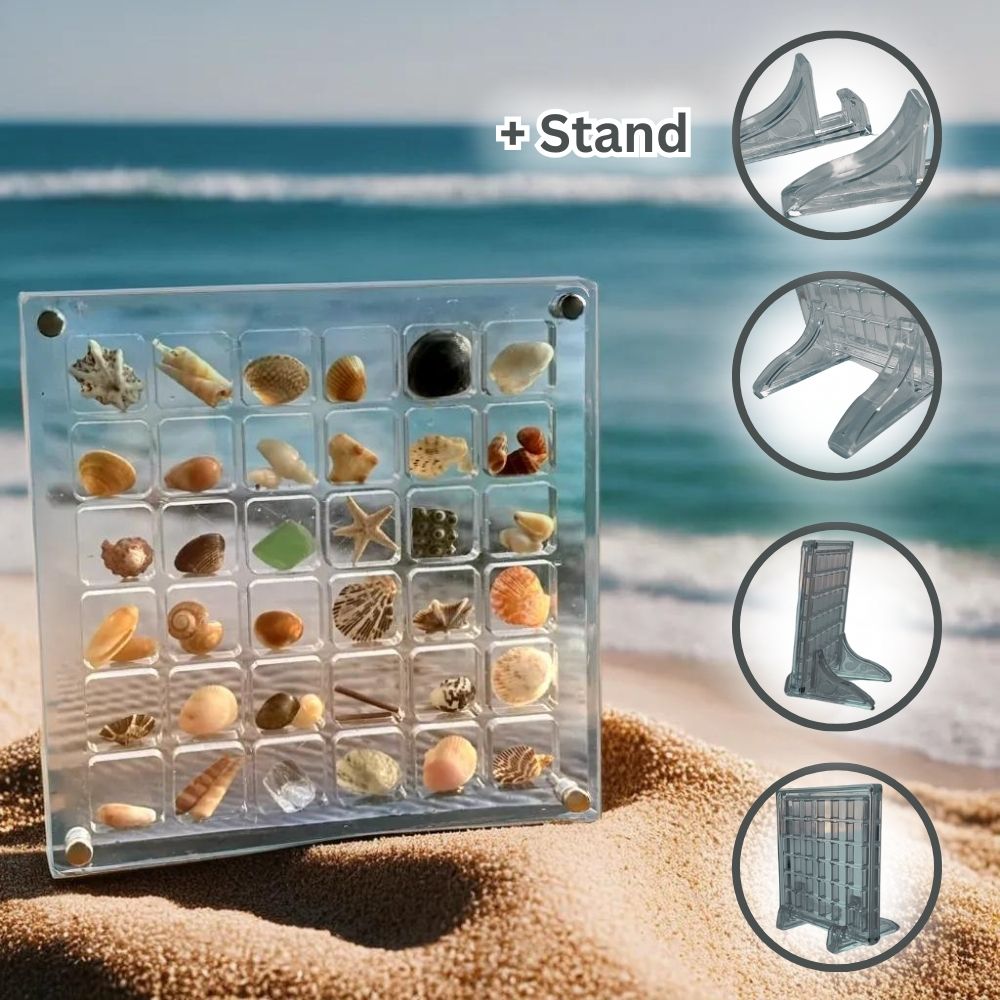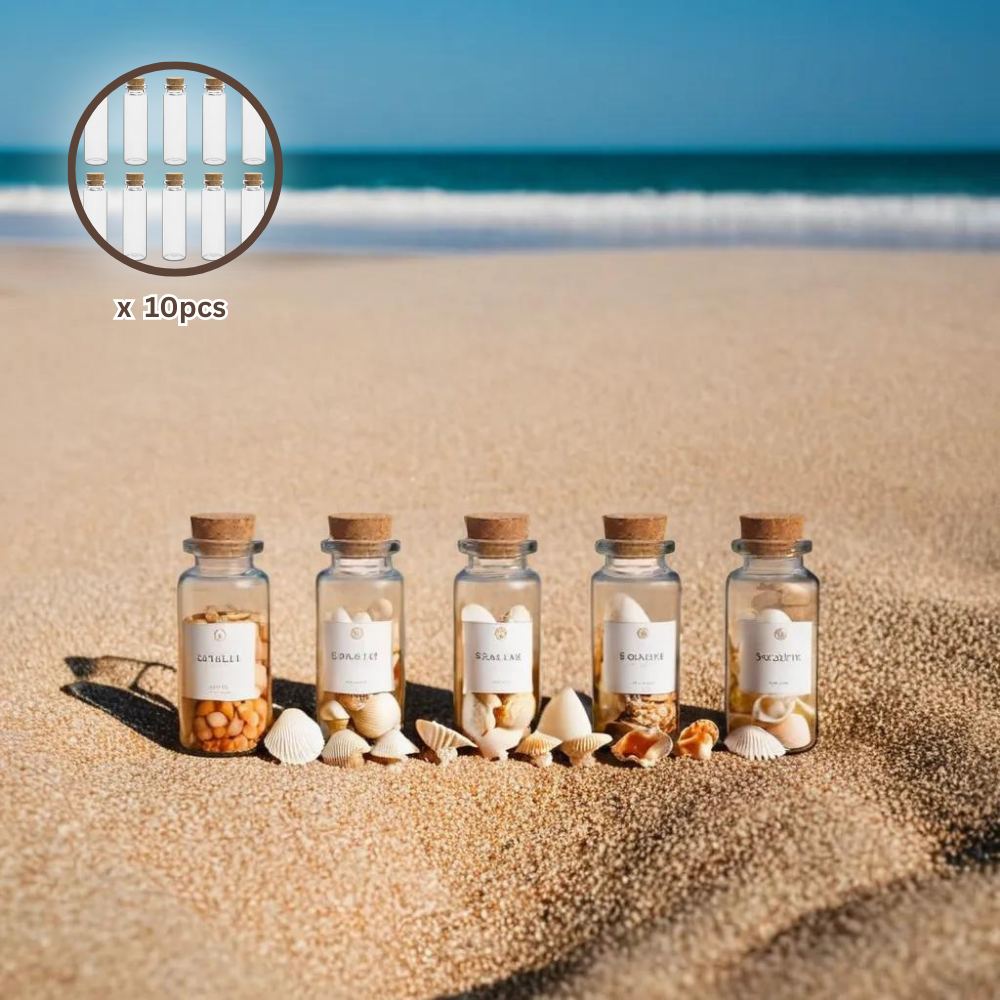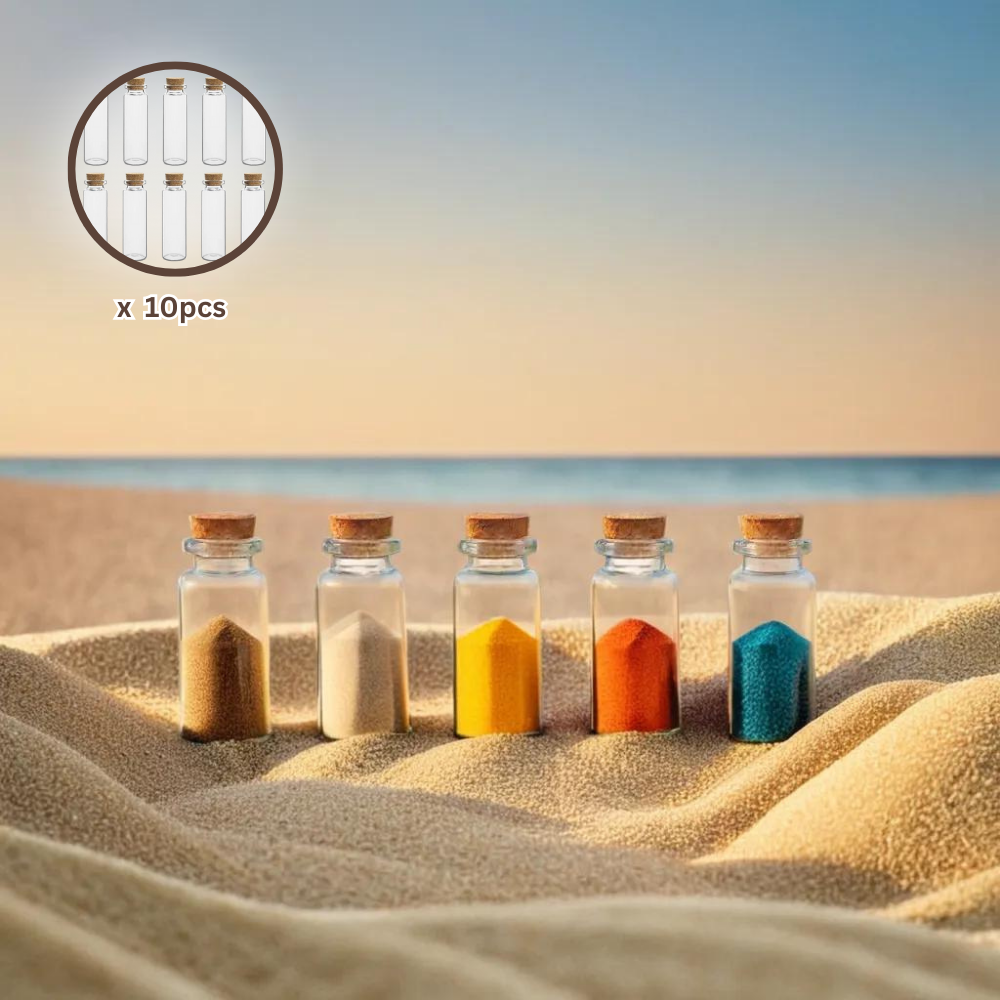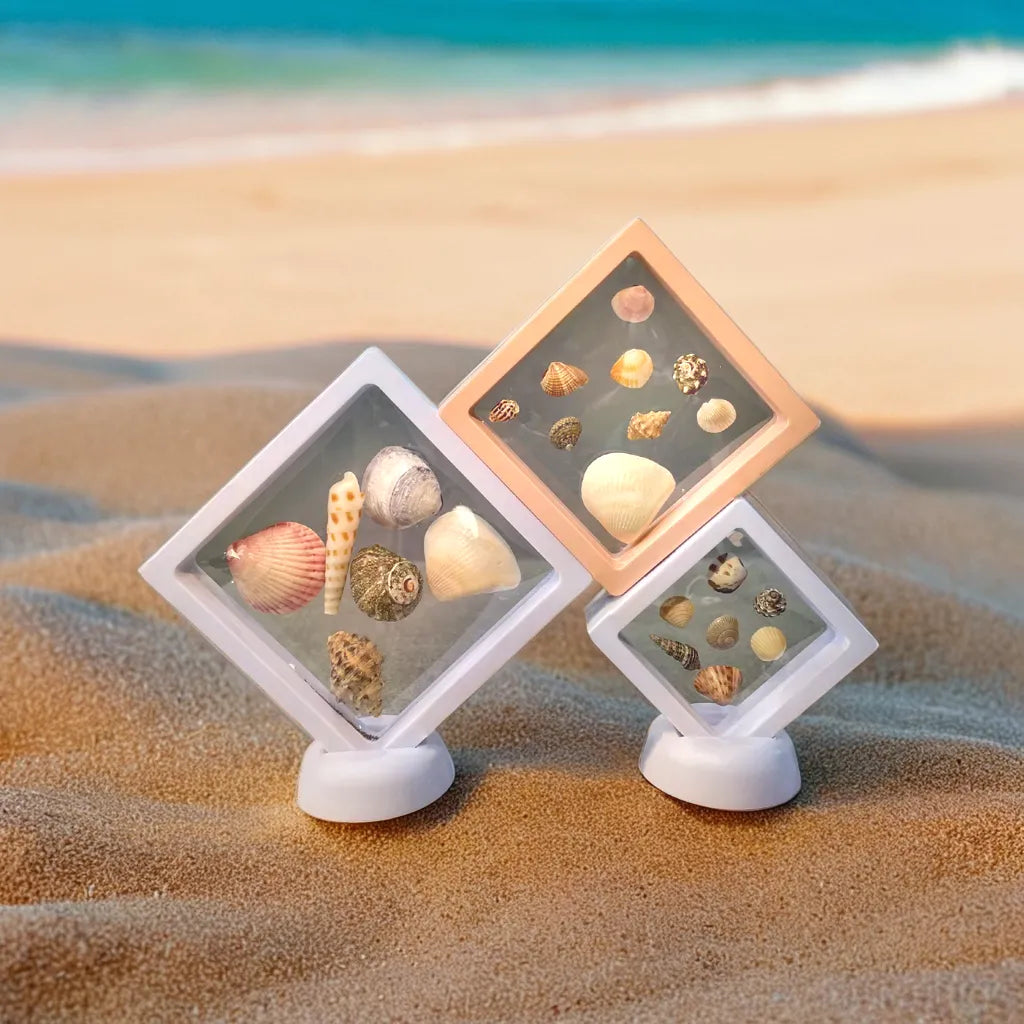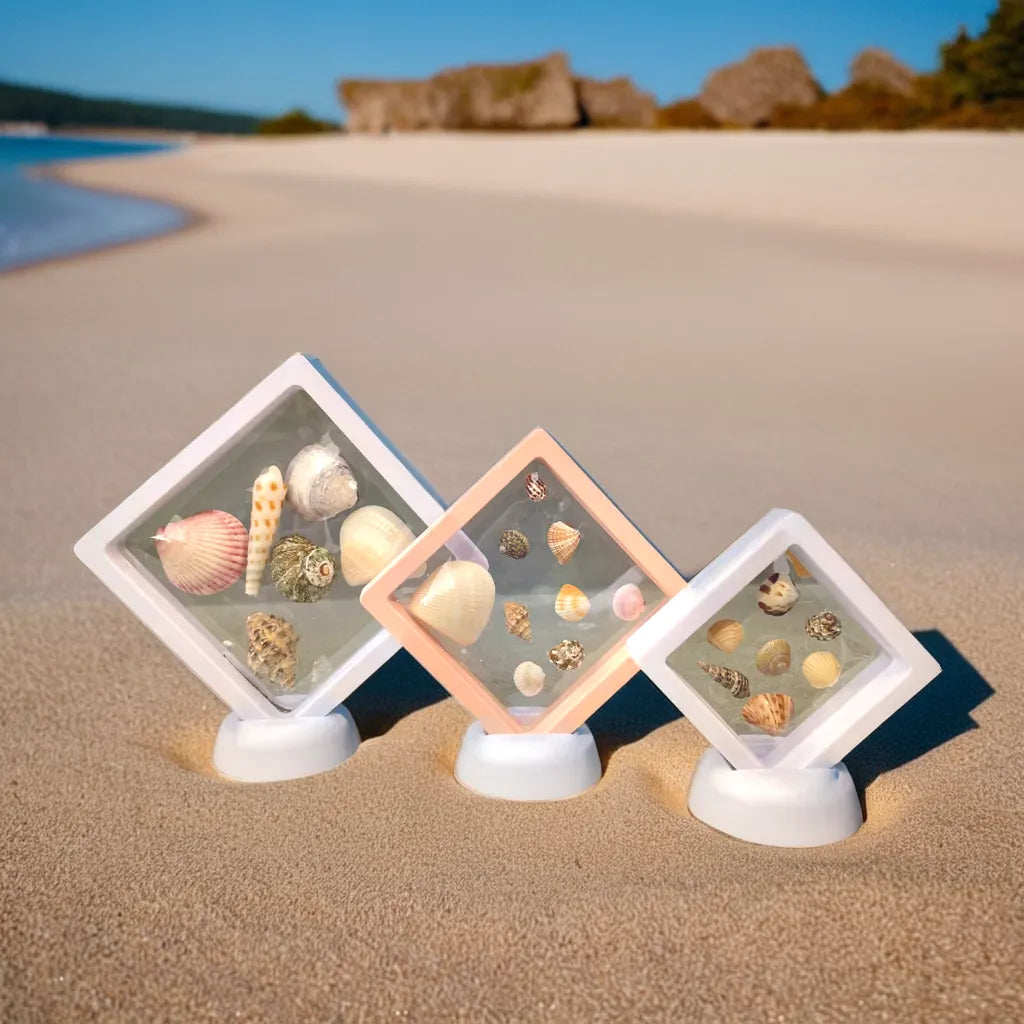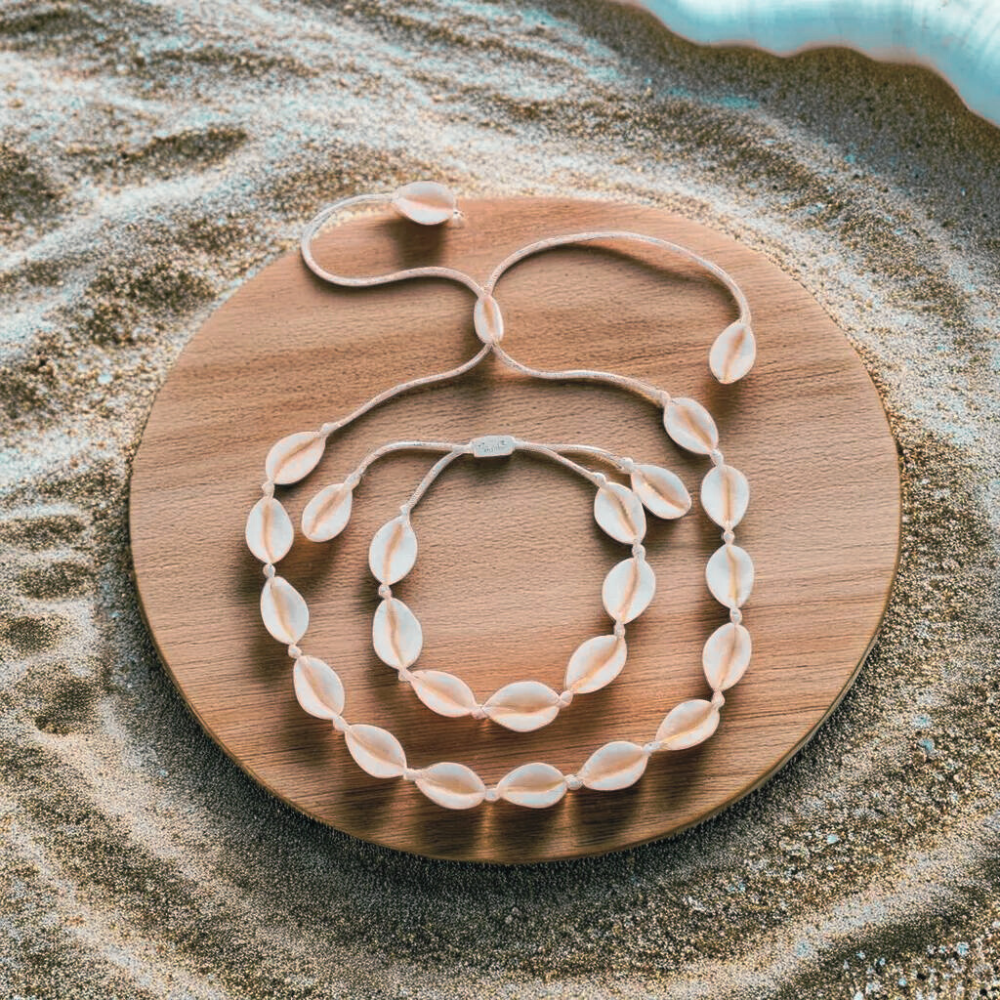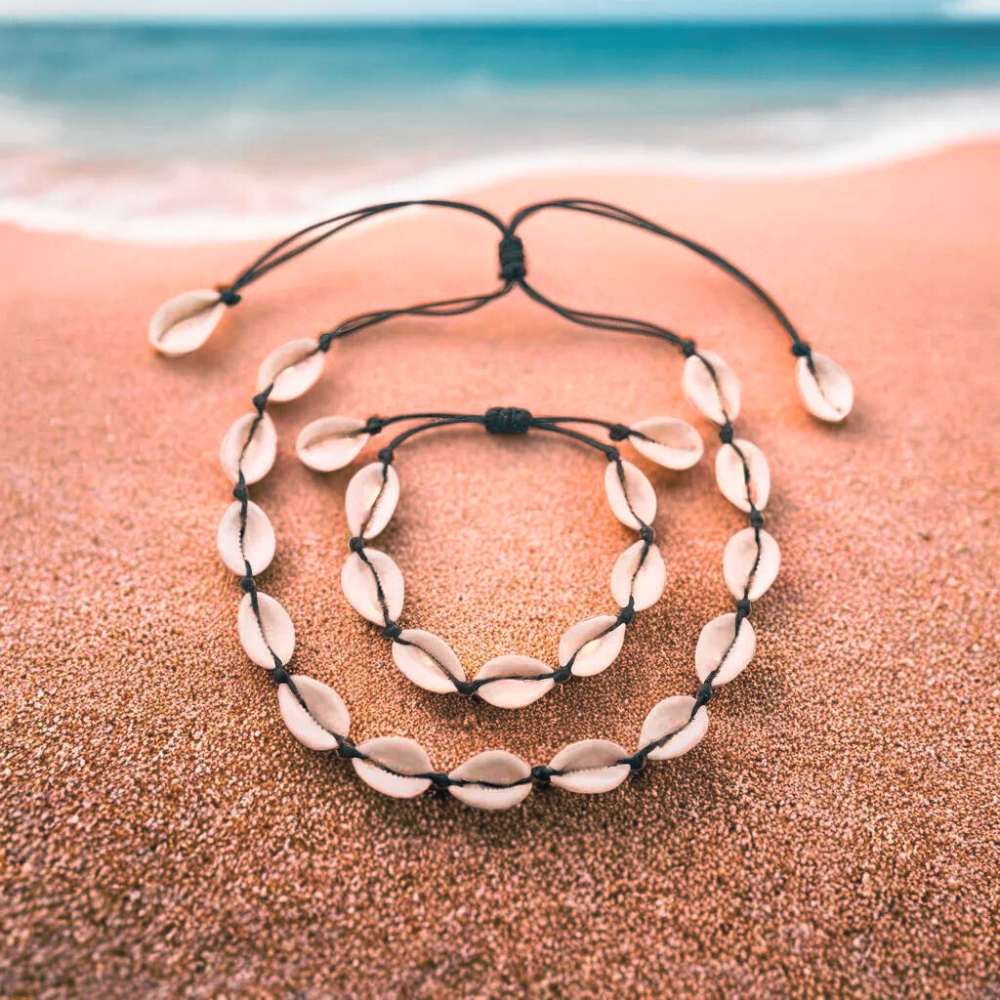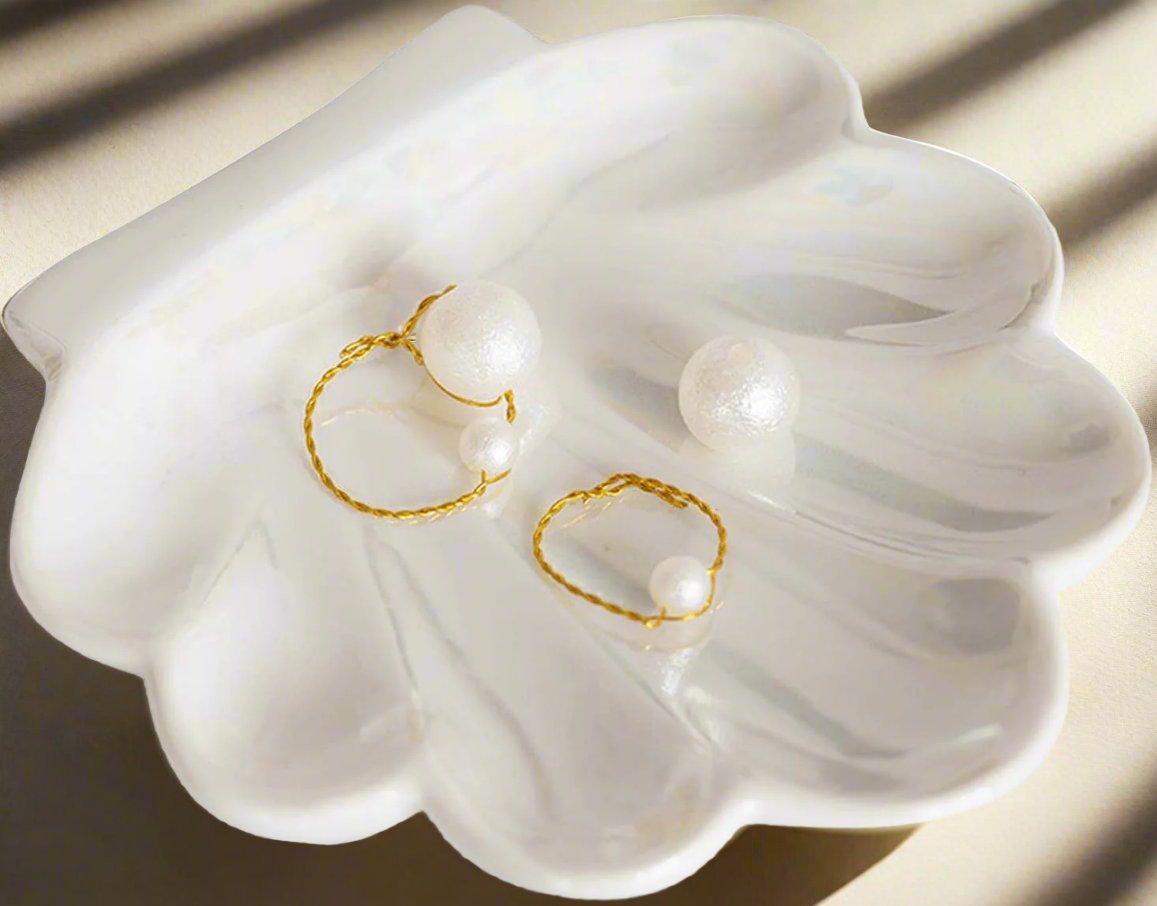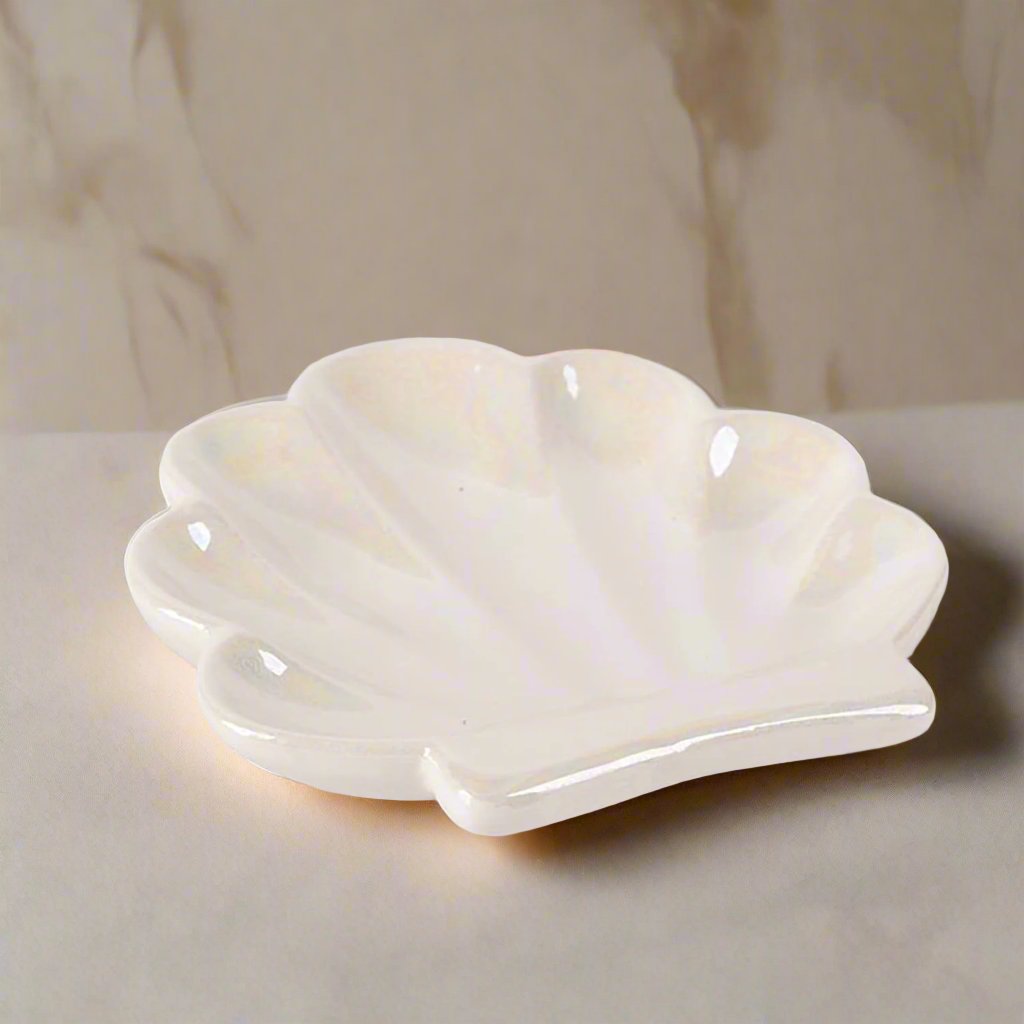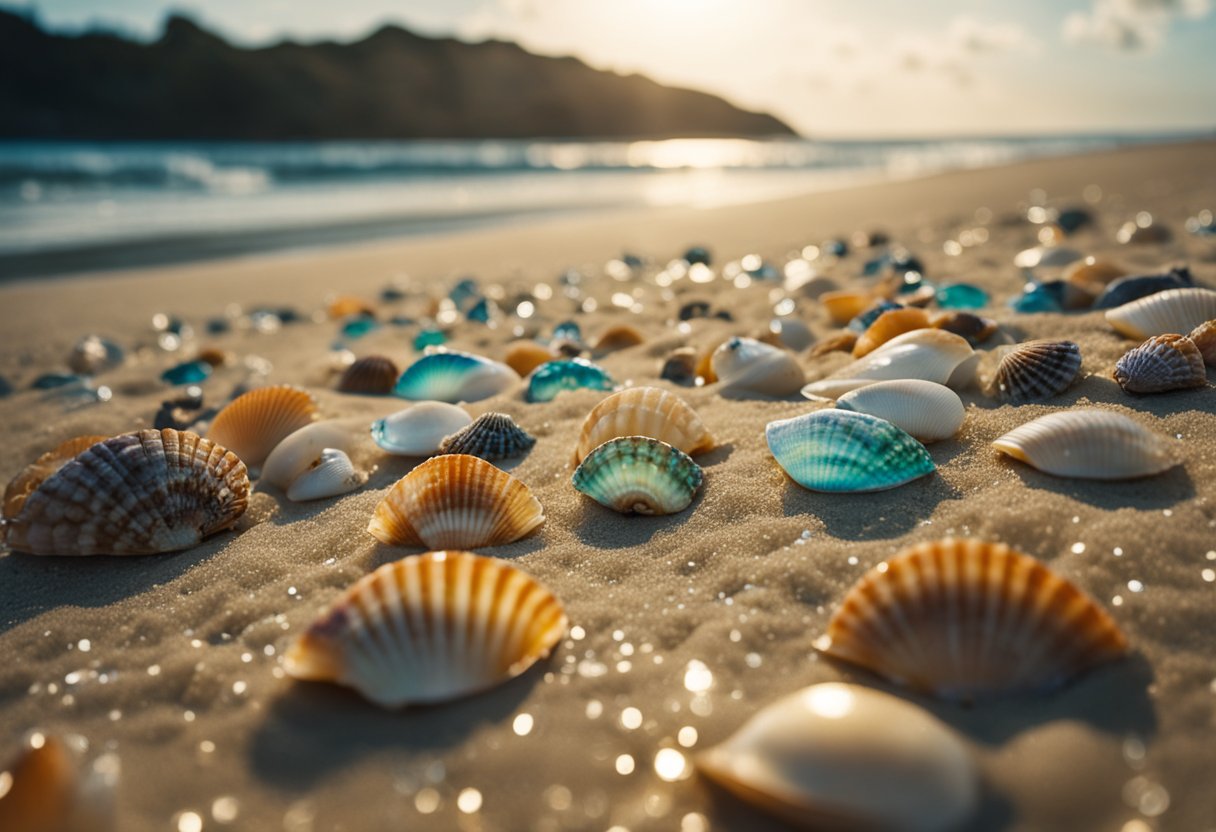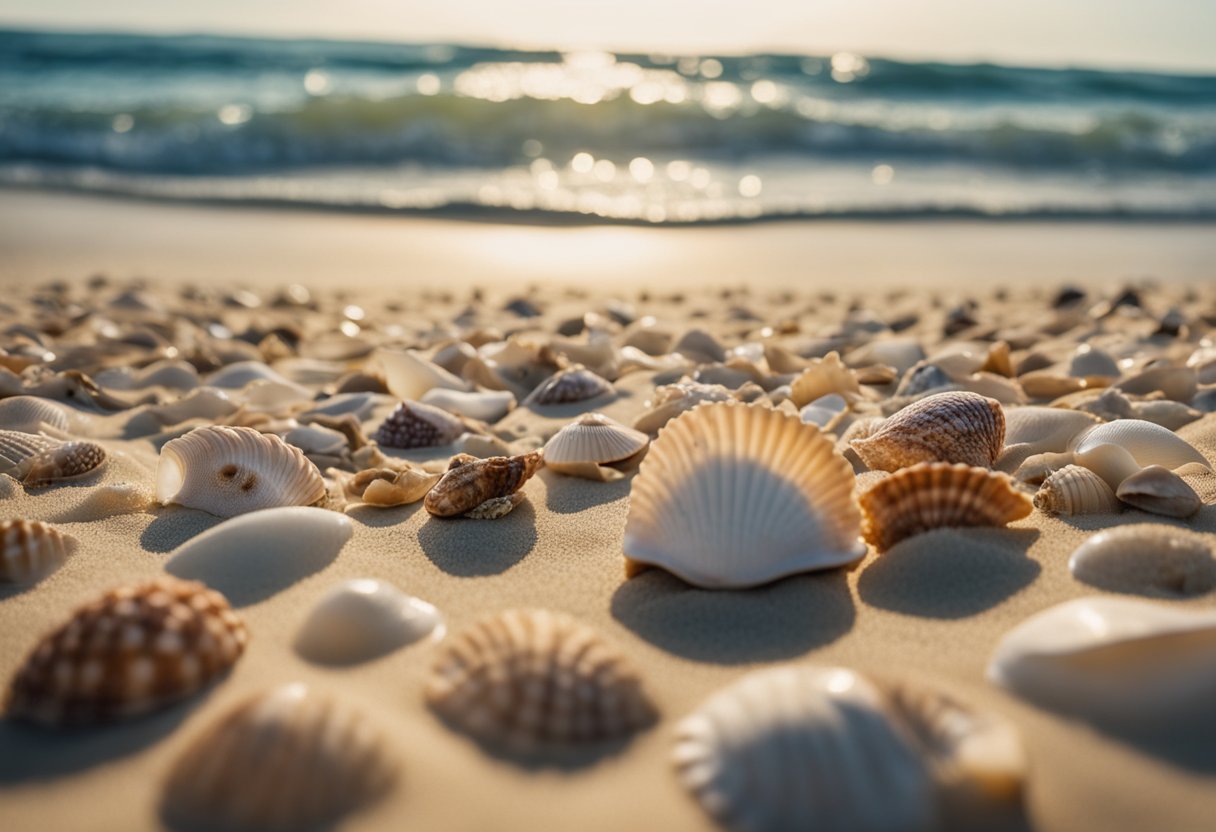Beaches in the United Kingdom offer more than just stunning views and pleasant weather; they also provide excellent opportunities for shelling. The 2024 travel season has spotlighted several UK beaches where visitors can find unique and beautiful seashells.
 For those who enjoy collecting shells, these beaches are among the top destinations globally. From rare finds to common beauties, UK shorelines have something for every shell enthusiast. Whether you're an experienced collector or just starting, the UK's beaches are sure to impress.
For those who enjoy collecting shells, these beaches are among the top destinations globally. From rare finds to common beauties, UK shorelines have something for every shell enthusiast. Whether you're an experienced collector or just starting, the UK's beaches are sure to impress.
 Whitehaven Beach, famous for its bright white sand, is often considered a top destination. The sand is 98.9% pure silica, creating a striking contrast with the clear blue water. Located in the Whitsunday Islands, Queensland, this beach stretches over 7 kilometers, offering plenty of shoreline for shelling enthusiasts to explore.
Whitehaven Beach, famous for its bright white sand, is often considered a top destination. The sand is 98.9% pure silica, creating a striking contrast with the clear blue water. Located in the Whitsunday Islands, Queensland, this beach stretches over 7 kilometers, offering plenty of shoreline for shelling enthusiasts to explore.
 Shell Island, located off the coast of Gwynedd, Wales, is a prime spot for shelling enthusiasts. Accessible by a causeway during low tide, it offers a unique opportunity to explore a variety of shells.
The island features sandy shores with an abundance of different shell species, making it a shell collector's dream.
Rich marine life around the island also contributes to the variety and volume of shells found there. Be sure to check tide schedules to plan your visit.
Shell Island, located off the coast of Gwynedd, Wales, is a prime spot for shelling enthusiasts. Accessible by a causeway during low tide, it offers a unique opportunity to explore a variety of shells.
The island features sandy shores with an abundance of different shell species, making it a shell collector's dream.
Rich marine life around the island also contributes to the variety and volume of shells found there. Be sure to check tide schedules to plan your visit.
 Holkham Beach in North Norfolk is well-known for its vast, sandy stretch that offers plenty of space for shelling.
The beach is a great spot for families and shell collectors alike. Visitors often find a variety of shells scattered across the sand, especially after high tide.
Holkham Beach is not just about shelling; it also features a naturist area towards the West end, allowing for a unique, relaxed experience.
Holkham Beach in North Norfolk is well-known for its vast, sandy stretch that offers plenty of space for shelling.
The beach is a great spot for families and shell collectors alike. Visitors often find a variety of shells scattered across the sand, especially after high tide.
Holkham Beach is not just about shelling; it also features a naturist area towards the West end, allowing for a unique, relaxed experience.
 South Milton Sands is a picturesque beach in Devon, England. Known for its soft sand and grassy dunes, it offers a peaceful setting.
The distinctive Thurlestone Rock offshore adds to its charm. Visitors can enjoy exploring the beach and searching for shells in the gentle waves.
Dogs are welcome year-round, making it a family-friendly spot.
South Milton Sands is a picturesque beach in Devon, England. Known for its soft sand and grassy dunes, it offers a peaceful setting.
The distinctive Thurlestone Rock offshore adds to its charm. Visitors can enjoy exploring the beach and searching for shells in the gentle waves.
Dogs are welcome year-round, making it a family-friendly spot.
 Ross Back Sands is a serene beach located in Northumberland, UK. Known for its golden sand and peaceful atmosphere, it’s an excellent spot for shelling.
Visitors often find beautiful shell fragments that sparkle in the sunlight.
The beach is usually deserted, providing a quiet place for shell collectors. Ross Back Sands is a unique destination for those seeking natural beauty and solitude.
Ross Back Sands is a serene beach located in Northumberland, UK. Known for its golden sand and peaceful atmosphere, it’s an excellent spot for shelling.
Visitors often find beautiful shell fragments that sparkle in the sunlight.
The beach is usually deserted, providing a quiet place for shell collectors. Ross Back Sands is a unique destination for those seeking natural beauty and solitude.
 Studland Bay is a prime location for beachgoers in the United Kingdom. Located in Dorset, this beach boasts four miles of golden sands. It’s a great spot for swimming, as the beach gently slopes and is safe at all tides.
The area is also dog-friendly from October to April, making it a year-round destination for visitors.
Studland Bay is a prime location for beachgoers in the United Kingdom. Located in Dorset, this beach boasts four miles of golden sands. It’s a great spot for swimming, as the beach gently slopes and is safe at all tides.
The area is also dog-friendly from October to April, making it a year-round destination for visitors.
 Brockholes Nature Reserve, located off Junction 31 of the M6 in Preston, Lancashire, offers a unique shelling experience. This reserve, established on a former quarry, is now a thriving natural haven managed by the Wildlife Trust for Lancashire.
The strandlines along its beach areas are where you’ll find seashells mixed with debris like seaweed. The shores are home to sand hoppers, cockles, and lugworms, adding to the site's rich biodiversity.
Visitors can explore diverse habitats and enjoy nature moments throughout the 250-acre reserve, making it a worthwhile destination for shell enthusiasts.
Brockholes Nature Reserve, located off Junction 31 of the M6 in Preston, Lancashire, offers a unique shelling experience. This reserve, established on a former quarry, is now a thriving natural haven managed by the Wildlife Trust for Lancashire.
The strandlines along its beach areas are where you’ll find seashells mixed with debris like seaweed. The shores are home to sand hoppers, cockles, and lugworms, adding to the site's rich biodiversity.
Visitors can explore diverse habitats and enjoy nature moments throughout the 250-acre reserve, making it a worthwhile destination for shell enthusiasts.
 Porthor, also known as Whistling Sands, is a hidden gem on the Lleyn Peninsula. This beach features pale, soft sand that makes a distinctive whistling sound when walked on.
Visitors can enjoy scenic walks along paths from the National Trust car park, leading to stunning coastal views. The beach is surrounded by grassy cliffs and fields, offering a picturesque setting for a relaxing day out.
Porthor, also known as Whistling Sands, is a hidden gem on the Lleyn Peninsula. This beach features pale, soft sand that makes a distinctive whistling sound when walked on.
Visitors can enjoy scenic walks along paths from the National Trust car park, leading to stunning coastal views. The beach is surrounded by grassy cliffs and fields, offering a picturesque setting for a relaxing day out.
 Barafundle Bay is located in Stackpole, Pembrokeshire, and is known for its crystal-clear water and clean, sandy shores. The beach is accessible by a short walk from Stackpole Quay, making it a pleasant outing.
This beach is popular for its natural beauty and is a great spot for shelling. Families often visit for its safe environment and stunning scenery.
Barafundle Bay is located in Stackpole, Pembrokeshire, and is known for its crystal-clear water and clean, sandy shores. The beach is accessible by a short walk from Stackpole Quay, making it a pleasant outing.
This beach is popular for its natural beauty and is a great spot for shelling. Families often visit for its safe environment and stunning scenery.
 Camber Sands, located in East Sussex near Rye, offers a unique shelling experience. Spanning over 2 miles, its sandy beach contrasts with many nearby stone and shingle beaches. This makes it an ideal spot for shell hunters.
Visitors often find a variety of shells scattered along the expansive golden shoreline. The area is popular, so it’s best to visit during quieter times for a more peaceful shelling excursion.
Camber Sands, located in East Sussex near Rye, offers a unique shelling experience. Spanning over 2 miles, its sandy beach contrasts with many nearby stone and shingle beaches. This makes it an ideal spot for shell hunters.
Visitors often find a variety of shells scattered along the expansive golden shoreline. The area is popular, so it’s best to visit during quieter times for a more peaceful shelling excursion.
 Collected seashells can be turned into beautiful pieces of home decor. One way to display them is by using a seashell display case. Each shell can be placed in its own slot, allowing for crystal clear visibility of your entire collection.
Another idea is to create shell art. Glue shells onto a picture frame, mirror, or canvas. This creates unique and personal art pieces that reflect your beach adventures.
Collected shells can also be used in DIY projects. Consider making decorative candle holders, wind chimes, or even garden pathways. These projects add a coastal touch to your living space.
For those who love gifting, seashells can be turned into thoughtful gifts. You can create small jewelry items like necklaces or bracelets. Another option is to use the display case and present it as a memorable gift.
Some people enjoy using seashells in home aquariums. They provide natural decor and hiding spots for fish. Just ensure the shells are clean before adding them.
Using a display case allows you to keep your shells organized and free from damage. It can be purchased from FinGlass, offering 36 organizing grids and a 90-day money-back guarantee.
Whether for decoration, art, or gifting, there are numerous ways to use your collected shells creatively. Frame your beach memories and keep them close, reminding you of your seaside adventures.
Collected seashells can be turned into beautiful pieces of home decor. One way to display them is by using a seashell display case. Each shell can be placed in its own slot, allowing for crystal clear visibility of your entire collection.
Another idea is to create shell art. Glue shells onto a picture frame, mirror, or canvas. This creates unique and personal art pieces that reflect your beach adventures.
Collected shells can also be used in DIY projects. Consider making decorative candle holders, wind chimes, or even garden pathways. These projects add a coastal touch to your living space.
For those who love gifting, seashells can be turned into thoughtful gifts. You can create small jewelry items like necklaces or bracelets. Another option is to use the display case and present it as a memorable gift.
Some people enjoy using seashells in home aquariums. They provide natural decor and hiding spots for fish. Just ensure the shells are clean before adding them.
Using a display case allows you to keep your shells organized and free from damage. It can be purchased from FinGlass, offering 36 organizing grids and a 90-day money-back guarantee.
Whether for decoration, art, or gifting, there are numerous ways to use your collected shells creatively. Frame your beach memories and keep them close, reminding you of your seaside adventures.
 Shelling in the United Kingdom offers unique opportunities to find various rare and exotic shells. Different regions and beaches provide ideal conditions for collectors.
Shelling in the United Kingdom offers unique opportunities to find various rare and exotic shells. Different regions and beaches provide ideal conditions for collectors.
 Shelling can be a delightful activity if approached with care for the environment, attention to safety, and the right tools. Knowing when and where to look, staying safe, and being properly equipped can enhance your experience.
Shelling can be a delightful activity if approached with care for the environment, attention to safety, and the right tools. Knowing when and where to look, staying safe, and being properly equipped can enhance your experience.
 Identifying shells on UK beaches can be an exciting activity. This section covers common species you may encounter and highlights some rare treasures worth seeking.
Identifying shells on UK beaches can be an exciting activity. This section covers common species you may encounter and highlights some rare treasures worth seeking.
 For those who enjoy collecting shells, these beaches are among the top destinations globally. From rare finds to common beauties, UK shorelines have something for every shell enthusiast. Whether you're an experienced collector or just starting, the UK's beaches are sure to impress.
For those who enjoy collecting shells, these beaches are among the top destinations globally. From rare finds to common beauties, UK shorelines have something for every shell enthusiast. Whether you're an experienced collector or just starting, the UK's beaches are sure to impress.
1) Whitehaven Beach
 Whitehaven Beach, famous for its bright white sand, is often considered a top destination. The sand is 98.9% pure silica, creating a striking contrast with the clear blue water. Located in the Whitsunday Islands, Queensland, this beach stretches over 7 kilometers, offering plenty of shoreline for shelling enthusiasts to explore.
Whitehaven Beach, famous for its bright white sand, is often considered a top destination. The sand is 98.9% pure silica, creating a striking contrast with the clear blue water. Located in the Whitsunday Islands, Queensland, this beach stretches over 7 kilometers, offering plenty of shoreline for shelling enthusiasts to explore.
2) Shell Island
 Shell Island, located off the coast of Gwynedd, Wales, is a prime spot for shelling enthusiasts. Accessible by a causeway during low tide, it offers a unique opportunity to explore a variety of shells.
The island features sandy shores with an abundance of different shell species, making it a shell collector's dream.
Rich marine life around the island also contributes to the variety and volume of shells found there. Be sure to check tide schedules to plan your visit.
Shell Island, located off the coast of Gwynedd, Wales, is a prime spot for shelling enthusiasts. Accessible by a causeway during low tide, it offers a unique opportunity to explore a variety of shells.
The island features sandy shores with an abundance of different shell species, making it a shell collector's dream.
Rich marine life around the island also contributes to the variety and volume of shells found there. Be sure to check tide schedules to plan your visit.
3) Holkham Beach
 Holkham Beach in North Norfolk is well-known for its vast, sandy stretch that offers plenty of space for shelling.
The beach is a great spot for families and shell collectors alike. Visitors often find a variety of shells scattered across the sand, especially after high tide.
Holkham Beach is not just about shelling; it also features a naturist area towards the West end, allowing for a unique, relaxed experience.
Holkham Beach in North Norfolk is well-known for its vast, sandy stretch that offers plenty of space for shelling.
The beach is a great spot for families and shell collectors alike. Visitors often find a variety of shells scattered across the sand, especially after high tide.
Holkham Beach is not just about shelling; it also features a naturist area towards the West end, allowing for a unique, relaxed experience.
4) South Milton Sands
 South Milton Sands is a picturesque beach in Devon, England. Known for its soft sand and grassy dunes, it offers a peaceful setting.
The distinctive Thurlestone Rock offshore adds to its charm. Visitors can enjoy exploring the beach and searching for shells in the gentle waves.
Dogs are welcome year-round, making it a family-friendly spot.
South Milton Sands is a picturesque beach in Devon, England. Known for its soft sand and grassy dunes, it offers a peaceful setting.
The distinctive Thurlestone Rock offshore adds to its charm. Visitors can enjoy exploring the beach and searching for shells in the gentle waves.
Dogs are welcome year-round, making it a family-friendly spot.
5) Ross Back Sands
 Ross Back Sands is a serene beach located in Northumberland, UK. Known for its golden sand and peaceful atmosphere, it’s an excellent spot for shelling.
Visitors often find beautiful shell fragments that sparkle in the sunlight.
The beach is usually deserted, providing a quiet place for shell collectors. Ross Back Sands is a unique destination for those seeking natural beauty and solitude.
Ross Back Sands is a serene beach located in Northumberland, UK. Known for its golden sand and peaceful atmosphere, it’s an excellent spot for shelling.
Visitors often find beautiful shell fragments that sparkle in the sunlight.
The beach is usually deserted, providing a quiet place for shell collectors. Ross Back Sands is a unique destination for those seeking natural beauty and solitude.
6) Studland Bay
 Studland Bay is a prime location for beachgoers in the United Kingdom. Located in Dorset, this beach boasts four miles of golden sands. It’s a great spot for swimming, as the beach gently slopes and is safe at all tides.
The area is also dog-friendly from October to April, making it a year-round destination for visitors.
Studland Bay is a prime location for beachgoers in the United Kingdom. Located in Dorset, this beach boasts four miles of golden sands. It’s a great spot for swimming, as the beach gently slopes and is safe at all tides.
The area is also dog-friendly from October to April, making it a year-round destination for visitors.
7) Brockholes Reserve
 Brockholes Nature Reserve, located off Junction 31 of the M6 in Preston, Lancashire, offers a unique shelling experience. This reserve, established on a former quarry, is now a thriving natural haven managed by the Wildlife Trust for Lancashire.
The strandlines along its beach areas are where you’ll find seashells mixed with debris like seaweed. The shores are home to sand hoppers, cockles, and lugworms, adding to the site's rich biodiversity.
Visitors can explore diverse habitats and enjoy nature moments throughout the 250-acre reserve, making it a worthwhile destination for shell enthusiasts.
Brockholes Nature Reserve, located off Junction 31 of the M6 in Preston, Lancashire, offers a unique shelling experience. This reserve, established on a former quarry, is now a thriving natural haven managed by the Wildlife Trust for Lancashire.
The strandlines along its beach areas are where you’ll find seashells mixed with debris like seaweed. The shores are home to sand hoppers, cockles, and lugworms, adding to the site's rich biodiversity.
Visitors can explore diverse habitats and enjoy nature moments throughout the 250-acre reserve, making it a worthwhile destination for shell enthusiasts.
8) Porthor
 Porthor, also known as Whistling Sands, is a hidden gem on the Lleyn Peninsula. This beach features pale, soft sand that makes a distinctive whistling sound when walked on.
Visitors can enjoy scenic walks along paths from the National Trust car park, leading to stunning coastal views. The beach is surrounded by grassy cliffs and fields, offering a picturesque setting for a relaxing day out.
Porthor, also known as Whistling Sands, is a hidden gem on the Lleyn Peninsula. This beach features pale, soft sand that makes a distinctive whistling sound when walked on.
Visitors can enjoy scenic walks along paths from the National Trust car park, leading to stunning coastal views. The beach is surrounded by grassy cliffs and fields, offering a picturesque setting for a relaxing day out.
9) Barafundle Bay
 Barafundle Bay is located in Stackpole, Pembrokeshire, and is known for its crystal-clear water and clean, sandy shores. The beach is accessible by a short walk from Stackpole Quay, making it a pleasant outing.
This beach is popular for its natural beauty and is a great spot for shelling. Families often visit for its safe environment and stunning scenery.
Barafundle Bay is located in Stackpole, Pembrokeshire, and is known for its crystal-clear water and clean, sandy shores. The beach is accessible by a short walk from Stackpole Quay, making it a pleasant outing.
This beach is popular for its natural beauty and is a great spot for shelling. Families often visit for its safe environment and stunning scenery.
10) Camber Sands
 Camber Sands, located in East Sussex near Rye, offers a unique shelling experience. Spanning over 2 miles, its sandy beach contrasts with many nearby stone and shingle beaches. This makes it an ideal spot for shell hunters.
Visitors often find a variety of shells scattered along the expansive golden shoreline. The area is popular, so it’s best to visit during quieter times for a more peaceful shelling excursion.
Camber Sands, located in East Sussex near Rye, offers a unique shelling experience. Spanning over 2 miles, its sandy beach contrasts with many nearby stone and shingle beaches. This makes it an ideal spot for shell hunters.
Visitors often find a variety of shells scattered along the expansive golden shoreline. The area is popular, so it’s best to visit during quieter times for a more peaceful shelling excursion.
What to do with the Collected Shells?
 Collected seashells can be turned into beautiful pieces of home decor. One way to display them is by using a seashell display case. Each shell can be placed in its own slot, allowing for crystal clear visibility of your entire collection.
Another idea is to create shell art. Glue shells onto a picture frame, mirror, or canvas. This creates unique and personal art pieces that reflect your beach adventures.
Collected shells can also be used in DIY projects. Consider making decorative candle holders, wind chimes, or even garden pathways. These projects add a coastal touch to your living space.
For those who love gifting, seashells can be turned into thoughtful gifts. You can create small jewelry items like necklaces or bracelets. Another option is to use the display case and present it as a memorable gift.
Some people enjoy using seashells in home aquariums. They provide natural decor and hiding spots for fish. Just ensure the shells are clean before adding them.
Using a display case allows you to keep your shells organized and free from damage. It can be purchased from FinGlass, offering 36 organizing grids and a 90-day money-back guarantee.
Whether for decoration, art, or gifting, there are numerous ways to use your collected shells creatively. Frame your beach memories and keep them close, reminding you of your seaside adventures.
Collected seashells can be turned into beautiful pieces of home decor. One way to display them is by using a seashell display case. Each shell can be placed in its own slot, allowing for crystal clear visibility of your entire collection.
Another idea is to create shell art. Glue shells onto a picture frame, mirror, or canvas. This creates unique and personal art pieces that reflect your beach adventures.
Collected shells can also be used in DIY projects. Consider making decorative candle holders, wind chimes, or even garden pathways. These projects add a coastal touch to your living space.
For those who love gifting, seashells can be turned into thoughtful gifts. You can create small jewelry items like necklaces or bracelets. Another option is to use the display case and present it as a memorable gift.
Some people enjoy using seashells in home aquariums. They provide natural decor and hiding spots for fish. Just ensure the shells are clean before adding them.
Using a display case allows you to keep your shells organized and free from damage. It can be purchased from FinGlass, offering 36 organizing grids and a 90-day money-back guarantee.
Whether for decoration, art, or gifting, there are numerous ways to use your collected shells creatively. Frame your beach memories and keep them close, reminding you of your seaside adventures.
Understanding Shelling In The United Kingdom
 Shelling in the United Kingdom offers unique opportunities to find various rare and exotic shells. Different regions and beaches provide ideal conditions for collectors.
Shelling in the United Kingdom offers unique opportunities to find various rare and exotic shells. Different regions and beaches provide ideal conditions for collectors.
What Is Shelling?
Shelling is the activity of searching for seashells on the beach. People often enjoy it as a relaxing hobby, and some even collect shells as souvenirs. There are many types of shells, each with its own characteristics. Enthusiasts usually look for cowries, conches, and scallops, among others. The best time for shelling is usually during low tide, when more shells are exposed. Storms can also wash up a great number of shells on the shore.Why The United Kingdom Is Great For Shelling
The UK has a long coastline, offering plenty of beaches ideal for shelling. Some beaches are known for specific types of shells that you can't easily find elsewhere. One unique spot is the beaches of the Isle of Wight, famous for their large and colorful shells. Another great place is Cornwall, especially Porthcurno Beach, where a variety of shells can be found. The UK’s temperate climate and tidal patterns create perfect conditions for shelling. The combination of rocky shores and sandy beaches makes it even more exciting for collectors.Best Practices For Shelling
 Shelling can be a delightful activity if approached with care for the environment, attention to safety, and the right tools. Knowing when and where to look, staying safe, and being properly equipped can enhance your experience.
Shelling can be a delightful activity if approached with care for the environment, attention to safety, and the right tools. Knowing when and where to look, staying safe, and being properly equipped can enhance your experience.
Environmental Considerations
Respect for the environment is crucial. Always check local regulations before collecting shells. Some areas may have restrictions to protect marine life. Avoid taking live shells. These are shells with creatures still living inside them. By leaving live shells, you help preserve the ecosystem. Leave no trace. Bring a bag to collect any trash you might create during your trip. This ensures the beach remains clean and enjoyable for everyone. Limit your collection. Only take what you need and will use. This helps ensure that there are plenty of shells left for future visitors.Safety Tips
Be mindful of the tides. Early morning or late afternoon are typically the safest and most productive times for shelling. Always check tide charts before heading to the beach. Stay aware of your surroundings. Watch for weather changes and incoming waves, and avoid shelling near cliffs or unstable terrain where there might be a risk of falling or injury. Dress appropriately. Wear sunscreen, a hat, and protective footwear. Shells can be sharp, and the sun can be intense, so being prepared can help prevent injuries or discomfort. Bring a buddy. Whether for safety, assistance, or companionship, having someone with you can make the trip more enjoyable and secure.Tools And Gear
Having the right tools can make shelling more effective. A mesh bag is ideal for collecting shells, as it allows sand and water to drain out. A small shovel or scoop can help dig up shells buried in the sand. Make sure it's easy to carry and not too bulky. Bring a guidebook or app. Identifying the types of shells you find can be fun and educational. It helps you appreciate the variety and understand more about the local marine life. Waterproof bags can protect your phone and other valuables. This makes it easier to keep your items safe from water damage while you explore the beach.Identifying Different Types Of Shells
 Identifying shells on UK beaches can be an exciting activity. This section covers common species you may encounter and highlights some rare treasures worth seeking.
Identifying shells on UK beaches can be an exciting activity. This section covers common species you may encounter and highlights some rare treasures worth seeking.

